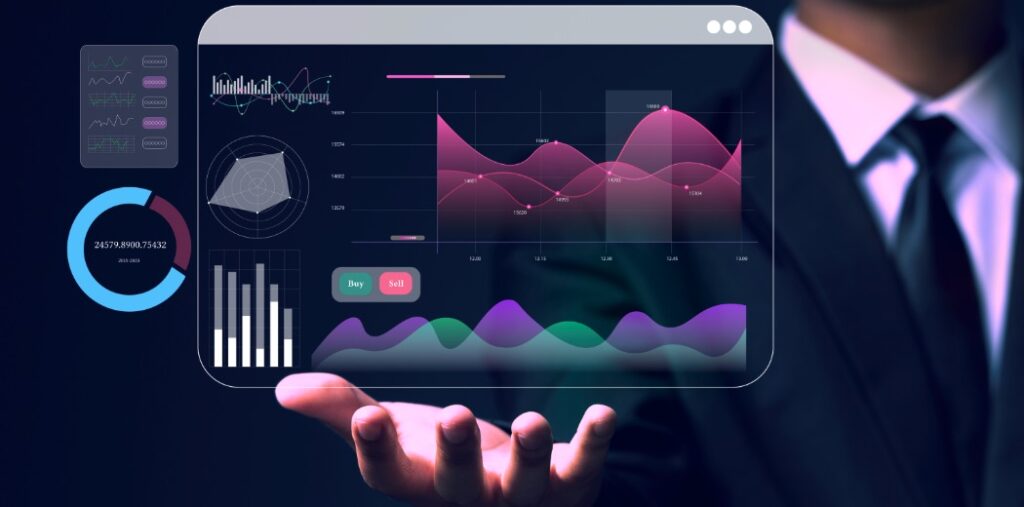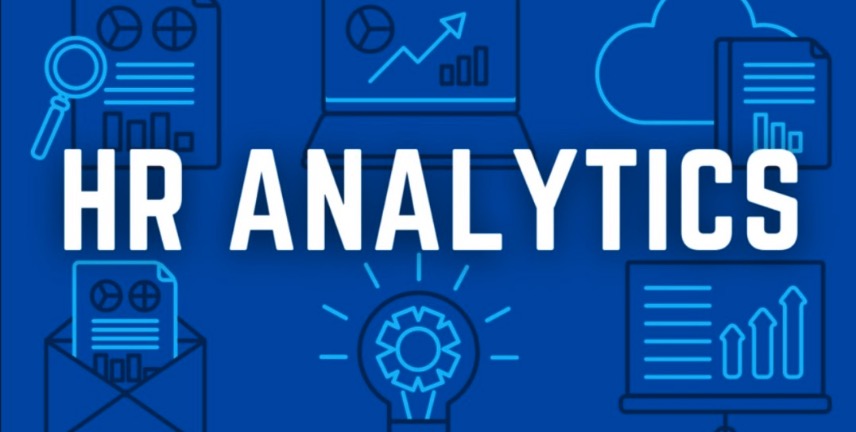Leveraging HR Analytics in Your HRIS[1] – Human Resources Information Systems (HRIS) have become a cornerstone of effective human resource management in organizations. With the integration of HR analytics, these systems can transform raw data into powerful insights, driving strategic decision-making and improving overall organizational performance. This article explores how leveraging HR analytics in your HRIS can revolutionize your HR practices and provide a competitive edge.

The Role of HR Analytics in Modern HRIS
Understanding HR Analytics
HR analytics involves the systematic collection, analysis, and interpretation of HR data. This data helps organizations understand their workforce better and make informed decisions. By leveraging HR analytics, companies can identify trends, predict future workforce needs, and measure the effectiveness of HR initiatives.
Importance of HR Analytics
The importance of HR analytics lies in its ability to provide data-driven insights that can enhance strategic HR planning. It enables HR professionals to move beyond traditional HR metrics, such as turnover rates and headcount, to more sophisticated analyses, including employee performance, engagement levels, and talent acquisition effectiveness.
Integration with HRIS
Integrating HR analytics with HRIS allows for seamless data flow and comprehensive analysis. This integration enables HR departments to have a centralized platform where they can access, analyze, and act upon HR data. It also ensures data accuracy and consistency, which are crucial for reliable analytics.
Enhancing Talent Acquisition Leveraging HR Analytics in Your HRIS

Predictive Analytics in Recruitment
Predictive analytics can significantly enhance the recruitment process. By analyzing historical data, HR professionals can predict which candidates are likely to be successful in a given role. This helps in making more informed hiring decisions and reduces the risk of bad hires.
Improving Candidate Experience
HR analytics can also improve the candidate experience. By analyzing data on candidate interactions and feedback, organizations can identify pain points in the recruitment process and make necessary improvements. This leads to a more positive candidate experience, which can enhance the employer brand.
Measuring Recruitment Effectiveness
With HR analytics, organizations can measure the effectiveness of their recruitment strategies. Metrics such as time-to-hire, cost-per-hire, and quality-of-hire provide valuable insights into the efficiency and effectiveness of the recruitment process. This information helps in optimizing recruitment strategies for better outcomes.
Optimizing Employee Performance Management
Performance Metrics and Analytics
Leveraging HR Analytics in Your HRIS Employee performance management is a critical area where HR analytics can add significant value. By tracking performance metrics, organizations can identify high performers, understand performance trends, and develop strategies to improve overall performance.
Identifying Training Needs
HR analytics can help in identifying training needs by analyzing performance data. This data can reveal skill gaps and areas where employees need additional training. By addressing these gaps, organizations can enhance employee performance and productivity.
Enhancing Employee Engagement
Leveraging HR Analytics in Your HRIS Employee engagement is closely linked to performance. HR analytics can provide insights into factors that influence engagement levels. By understanding these factors, organizations can develop targeted strategies to enhance employee engagement and, consequently, performance.
Streamlining Workforce Planning

Forecasting Workforce Needs
Leveraging HR Analytics in Your HRIS Workforce planning is essential for ensuring that an organization has the right people in the right roles at the right time. HR analytics can assist in forecasting workforce needs by analyzing historical data and predicting future trends. This helps in proactive planning and prevents talent shortages.
Succession Planning
Leveraging HR Analytics in Your HRIS Succession planning is crucial for organizational continuity. HR analytics can identify potential future leaders by analyzing performance data and career progression trends. This information helps in developing and implementing effective succession plans.
Managing Workforce Diversity
Diversity and inclusion are key components of a successful workforce. HR analytics can help in managing workforce diversity by providing insights into diversity metrics and identifying areas for improvement. This ensures that diversity and inclusion initiatives are data-driven and effective.
Enhancing Employee Retention
Identifying Turnover Trends
Leveraging HR Analytics in Your HRIS Employee retention is a major concern for many organizations. HR analytics can help in identifying turnover trends by analyzing data on employee exits. This information can reveal patterns and factors that contribute to turnover, enabling organizations to develop targeted retention strategies.
Predicting Employee Attrition
Predictive analytics can be used to predict employee attrition. By analyzing various factors, such as job satisfaction, engagement levels, and career progression, organizations can identify employees who are at risk of leaving. This allows for proactive measures to be taken to retain valuable talent.
Developing Retention Strategies
With insights from HR analytics, organizations can develop effective retention strategies. This may include targeted interventions, such as career development opportunities, recognition programs, and employee engagement initiatives. By addressing the specific needs and concerns of employees, organizations can improve retention rates.
Improving Compensation and Benefits Management
Analyzing Compensation Data
Leveraging HR Analytics in Your HRIS Compensation and benefits are critical components of employee satisfaction and retention. HR analytics can help in analyzing compensation data to ensure that pay structures are competitive and equitable. This analysis can reveal disparities and areas where adjustments are needed.
Optimizing Benefits Programs
HR analytics can also assist in optimizing benefits programs. By analyzing data on employee preferences and utilization of benefits, organizations can tailor their benefits offerings to better meet the needs of their workforce. This can enhance employee satisfaction and retention.
Ensuring Pay Equity
Leveraging HR Analytics in Your HRIS Pay equity is a significant concern for many organizations. HR analytics can help in ensuring pay equity by analyzing compensation data across different demographic groups. This analysis can identify any discrepancies and support the development of strategies to address pay equity issues.
Facilitating Organizational Development
Identifying Development Opportunities
Leveraging HR Analytics in Your HRIS Organizational development is essential for long-term success. HR analytics can help in identifying development opportunities by analyzing data on organizational performance, employee skills, and career progression. This information can inform strategic development initiatives.
Supporting Change Management
Change management is a critical aspect of organizational development. HR analytics can support change management by providing data-driven insights into employee readiness for change and the impact of change initiatives. This information helps in developing effective change management strategies.
Measuring Development Outcomes
Leveraging HR Analytics in Your HRIS Measuring the outcomes of development initiatives is crucial for understanding their effectiveness. HR analytics can provide insights into the impact of these initiatives on organizational performance and employee development. This information helps in refining and improving development programs.
Enhancing Employee Well-being
Monitoring Well-being Metrics
Leveraging HR Analytics in Your HRIS Employee well-being is vital for a productive workforce. HR analytics can help in monitoring well-being metrics, such as employee satisfaction, stress levels, and work-life balance. This information can inform well-being initiatives and support a healthy work environment.
Implementing Well-being Programs
With insights from HR analytics, organizations can implement well-being programs that address the specific needs of their workforce. This may include initiatives such as mental health support, wellness programs, and flexible work arrangements. These programs can enhance employee well-being and productivity.
Evaluating Program Effectiveness
Leveraging HR Analytics in Your HRIS Evaluating the effectiveness of well-being programs is essential for continuous improvement. HR analytics can provide data on program utilization and employee feedback, helping organizations assess the impact of their well-being initiatives. This information supports the development of more effective well-being programs.
Supporting Strategic Decision-Making
Data-Driven HR Strategy
HR analytics plays a crucial role in supporting strategic decision-making. By providing data-driven insights, HR analytics enables organizations to develop and implement HR strategies that align with business goals. This ensures that HR initiatives are aligned with the overall strategic direction of the organization.
Aligning HR with Business Goals
Leveraging HR Analytics in Your HRIS Aligning HR with business goals is essential for organizational success. HR analytics can help in this alignment by providing insights into how HR initiatives impact business outcomes. This information supports the development of HR strategies that drive business success.
Measuring HR Effectiveness
Leveraging HR Analytics in Your HRIS Measuring the effectiveness of HR initiatives is crucial for continuous improvement. HR analytics can provide data on the impact of HR initiatives on organizational performance, employee engagement, and other key metrics. This information helps in refining and improving HR strategies.
Implementing HR Analytics in Your HRIS
Choosing the Right HRIS
Choosing the right HRIS is the first step in implementing HR analytics. Organizations should look for HRIS solutions that offer robust analytics capabilities and seamless integration with existing systems. This ensures that the HRIS can effectively support HR analytics initiatives.
Ensuring Data Quality
Data quality is crucial for reliable HR analytics. Organizations should implement processes to ensure that HR data is accurate, consistent, and up-to-date. This includes regular data audits and the use of data validation tools.
Training HR Professionals
Training HR professionals in HR analytics is essential for successful implementation. This includes providing training on data analysis techniques, interpretation of analytics results, and the use of HRIS analytics tools. This ensures that HR professionals have the skills needed to leverage HR analytics effectively.
Future Trends in HR Analytics
Artificial Intelligence and Machine Learning
Artificial intelligence (AI) and machine learning (ML) are set to revolutionize HR analytics. These technologies can enhance predictive analytics, automate data analysis, and provide deeper insights into HR data. Organizations should stay abreast of developments in AI and ML to leverage these technologies effectively.
Real-Time Analytics
Real-time analytics is becoming increasingly important in HR. By providing up-to-date insights, real-time analytics enables organizations to make timely decisions and respond quickly to changes in the workforce. This is particularly important in fast-paced business environments.
Employee Experience Analytics
Employee experience analytics is an emerging trend in HR analytics. By analyzing data on employee interactions and experiences, organizations can gain a deeper understanding of the employee journey. This information can inform initiatives to enhance the employee experience and improve retention.
Conclusion
Leveraging HR analytics in your HRIS can transform your HR practices and provide a competitive edge. From enhancing talent acquisition to improving employee retention, HR analytics offers valuable insights that can drive strategic decision-making and optimize HR initiatives.
By integrating HR analytics into your HRIS, ensuring data quality, and training HR professionals, organizations can harness the power of data to achieve their HR goals and support overall business success. As technology continues to evolve, staying abreast of future trends in HR analytics will be crucial for maintaining a competitive advantage in the dynamic business landscape.
Reference
- https://omnihr.co/hr-analytics



